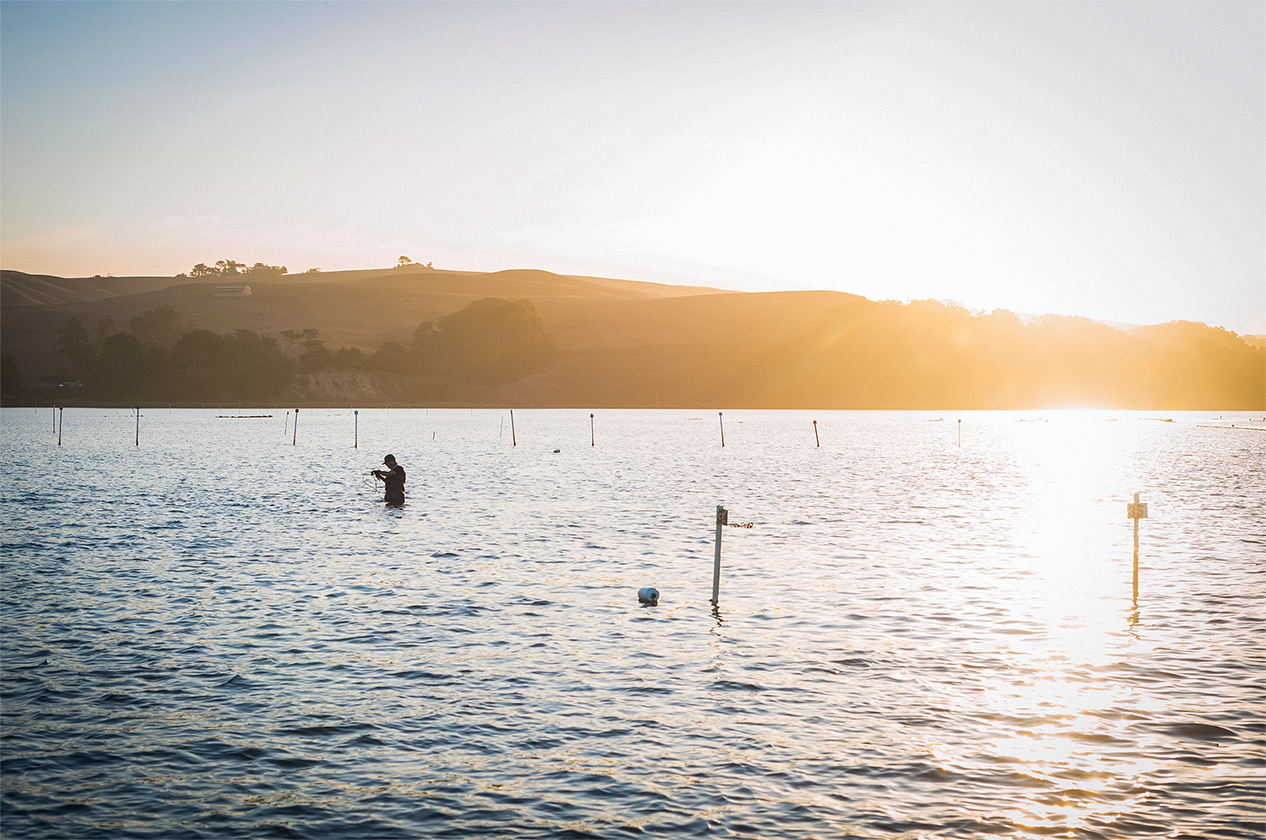California shellfish have been sustaining human communities for thousands of years. We’d like to keep up the tradition.
Over the past four decades, the Hog Island family has grown from just a few of us to over 300 employees. And as our business has grown, so has our impact. Today, we are learning to think about how our work can affect future generations—how we engage with the ocean, our communities, and the many ways we can play a positive role in the stewardship of our marine ecosystems. We know that to be sustainable, we must operate in a manner that ensures the health of coastal ecosystems, coastal communities, and ocean food systems now, and for generations to come. Here are just a few examples of our efforts:
Supporting Coastal Communities
Once vibrant parts of the coastal economy, West Coast working waterfronts, and especially fisheries, have been in decline for decades. The globalization of the seafood trade has driven many of these fisheries, and the coastal communities that rely on them, to the point of near-extinction. At Hog Island, we strive to support these coastal communities by sourcing seafood from smaller, family-operated fisheries and farms. These smaller operations tend to be more transparent about their practices, enabling us to work directly with the humans doing the fishing and farming. Ultimately, they, like us, are the front-line stewards of the coastal ecosystems we all rely on.
Fostering Small Businesses
We partner with local, small, and family-run seafood, farms, and culinary businesses that share our values. Here are just a few small businesses we partner with:
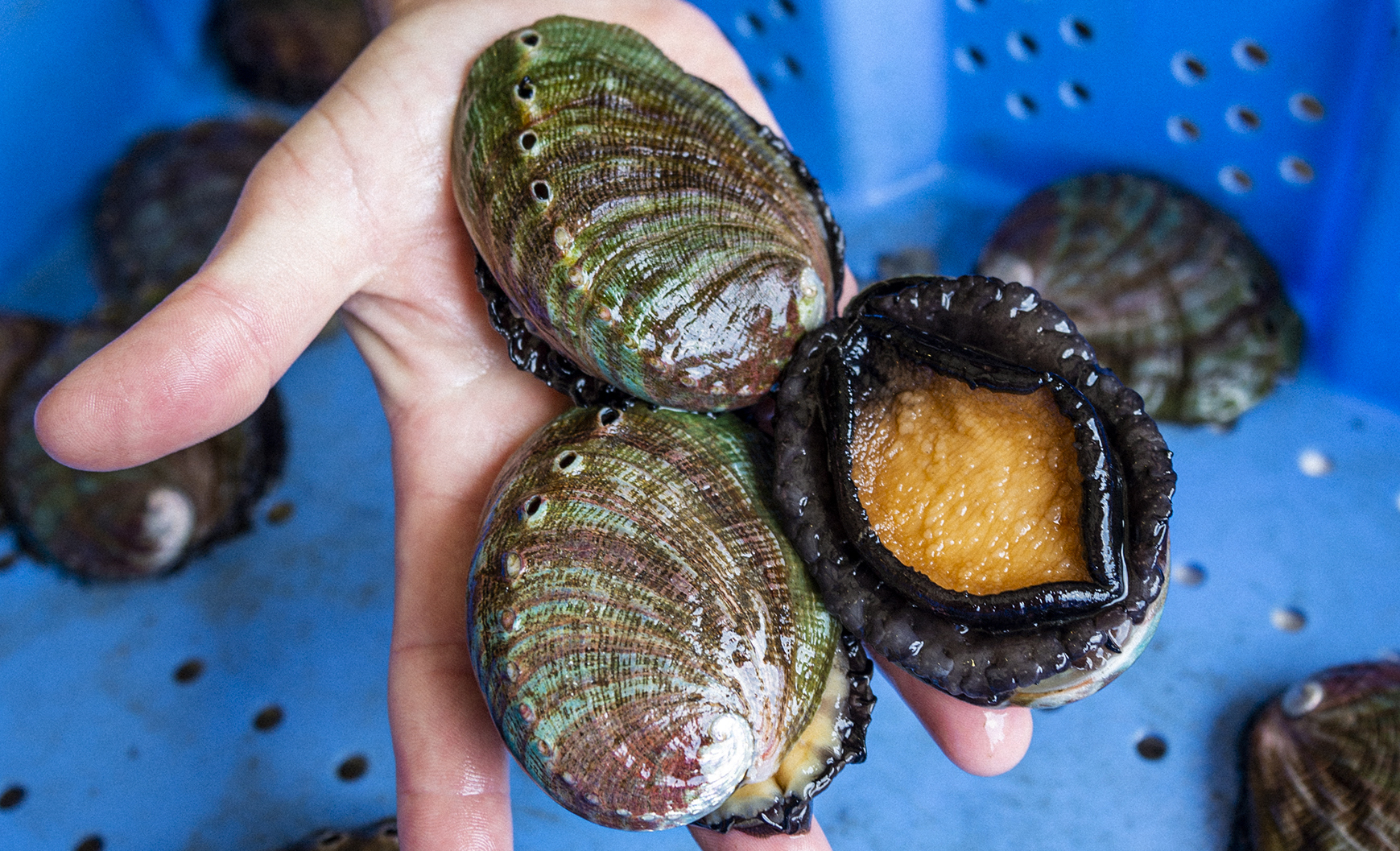
CULTURED ABALONE
We sell and distribute beautiful native red abalone from Cultured Abalone. They’re dedicated to the stewardship and sustainable farming practices that have earned them a green rating from Seafood Watch. We’re honored to help them continue to restore abalone to its rightful place as an iconic California seafood.
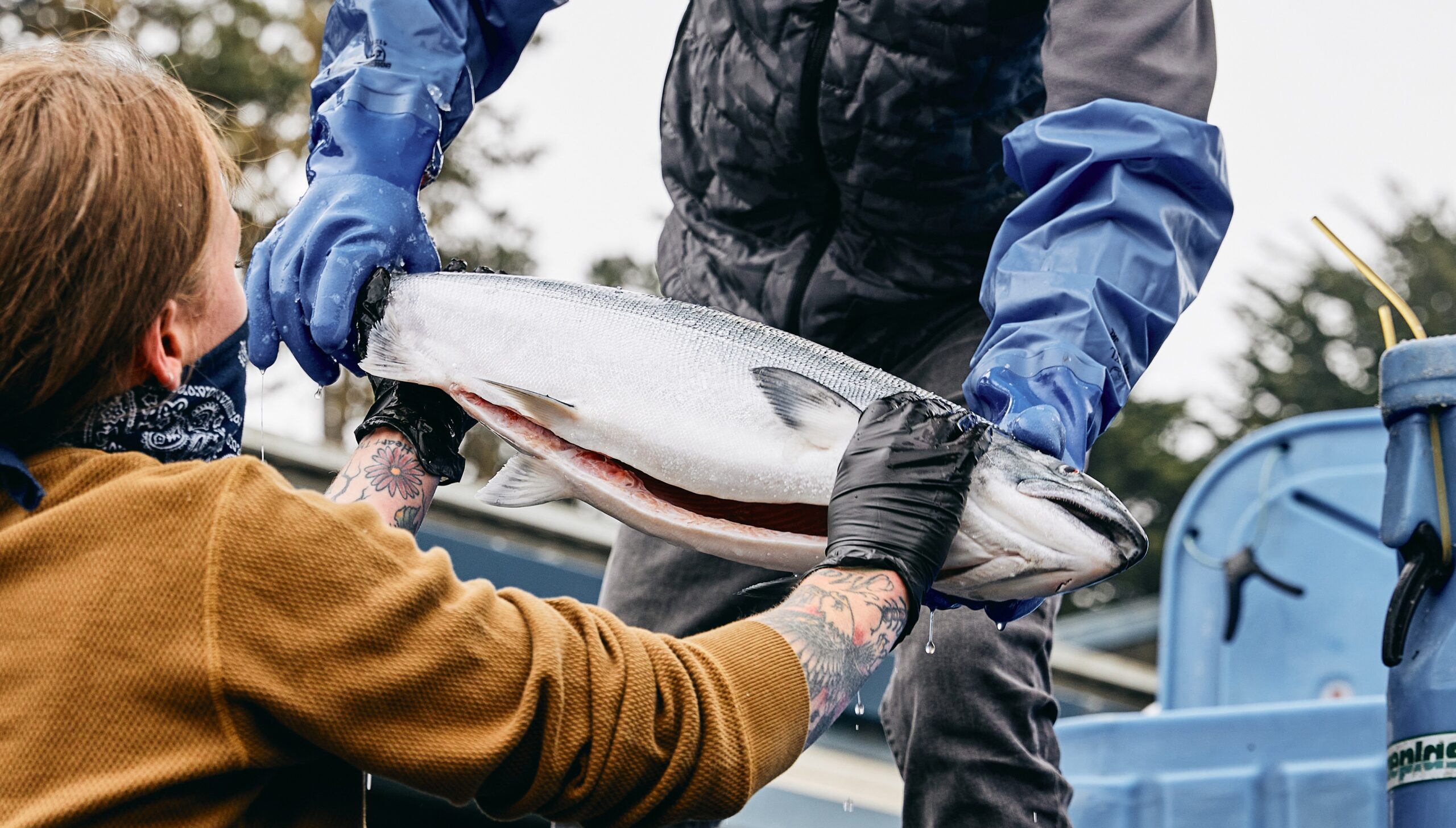
Hook to Table Fish Co.
Hook to Table Fish Co., supplies much of our halibut, black cod, and other local fin fish. Partnerships with small fisheries like these allow us to offer you the freshest local seafood, with minimal impact on the marine environment, all while supporting small, West Coast businesses.
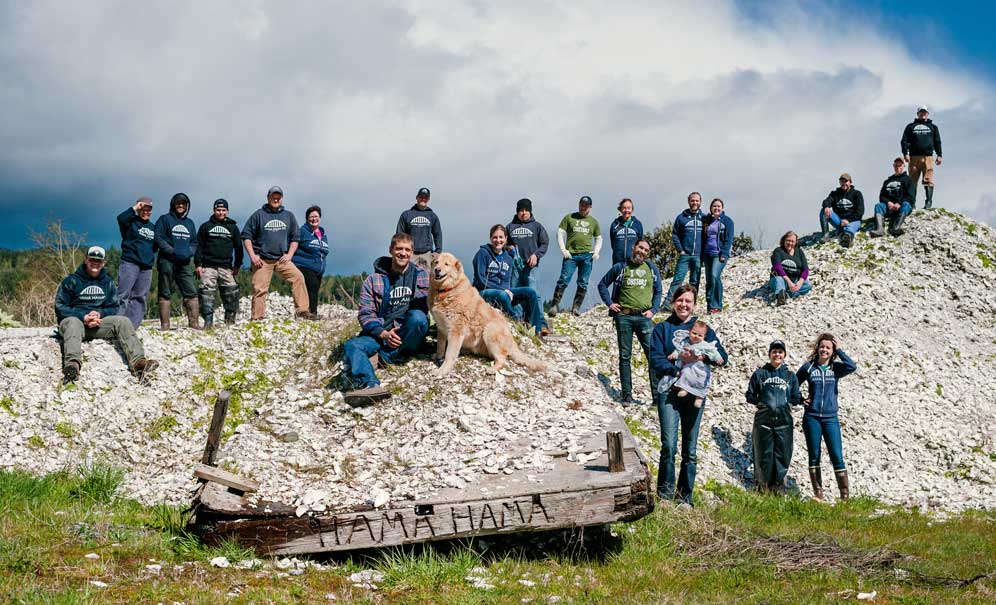
Hama Hama Oyster Co.
Partnering with smaller oyster farms allows us to feature the best oysters from up and down the West Coast. Hama Hama Oyster Co., one of the premier oyster farmers in the Pacific Northwest, is a 5th generation family-run oyster farm who shares our values in sustainable aquaculture.
Educating Future Generations
Each year we welcome hundreds of students to visit our farms, to learn about shellfish aquaculture and engage with the coastal ecology of Tomales and Humboldt Bays. Why all the outreach? Young visitors represent the next generation of eaters (and maybe farmers) and we want them to see first-hand that ocean farming, done properly, can be a highly sustainable part of our global food system. We also offer a range of educational experiences for our paying customers, with an added culinary angle. Find out more about our Farm Tours.
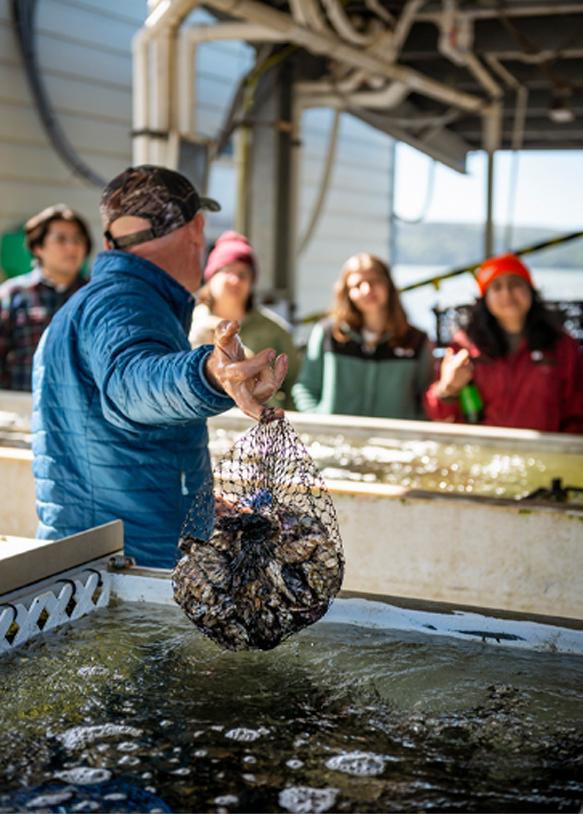
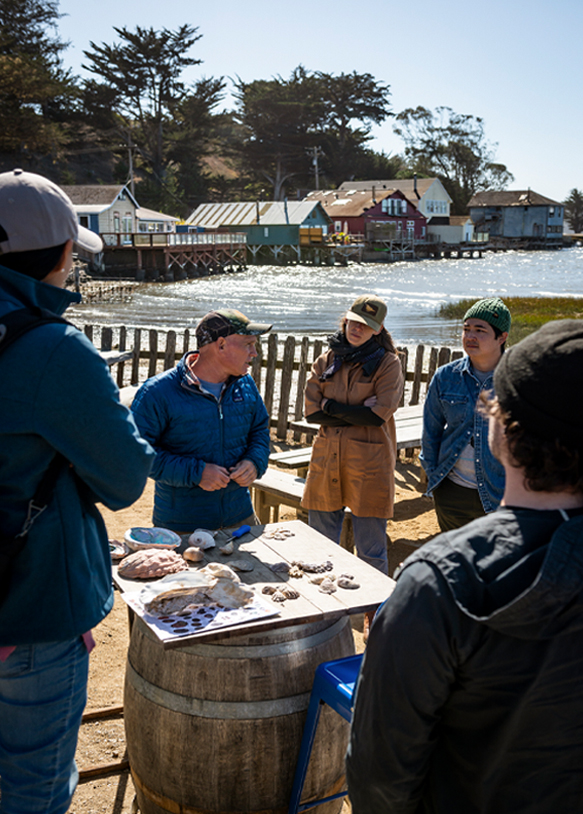
Supporting Coastal Science
As a company founded by marine biologists, Hog Island has always placed a high value on scientific research to inform the management of its aquaculture operations. And it turns out that shellfish farms can be incredibly valuable research sites for marine scientists. This has led to many unique partnerships with the research community. Ultimately, this helps us evolve to meet our goals in a changing ocean, but it also keeps us close to larger conversations about ocean health, so we can more effectively advocate for policy that supports that health.
Understanding the Opportunity of Seaweeds on Aquaculture Gear
In this innovative new study funded by California SeaGrant, research scientists from UC Santa Cruz, UC Santa Barbara, and CalPoly San Luis Obispo, along with Hog Island Oyster Co. and Grassy Bar Oyster Co. will examine the many types of seaweed that colonize oyster gear. These seaweeds, which are ultimately harvested along with the oysters, represent a possible “secondary harvest” for shellfish farmers and may also provide other ecological and culinary uses. (2024-2026)
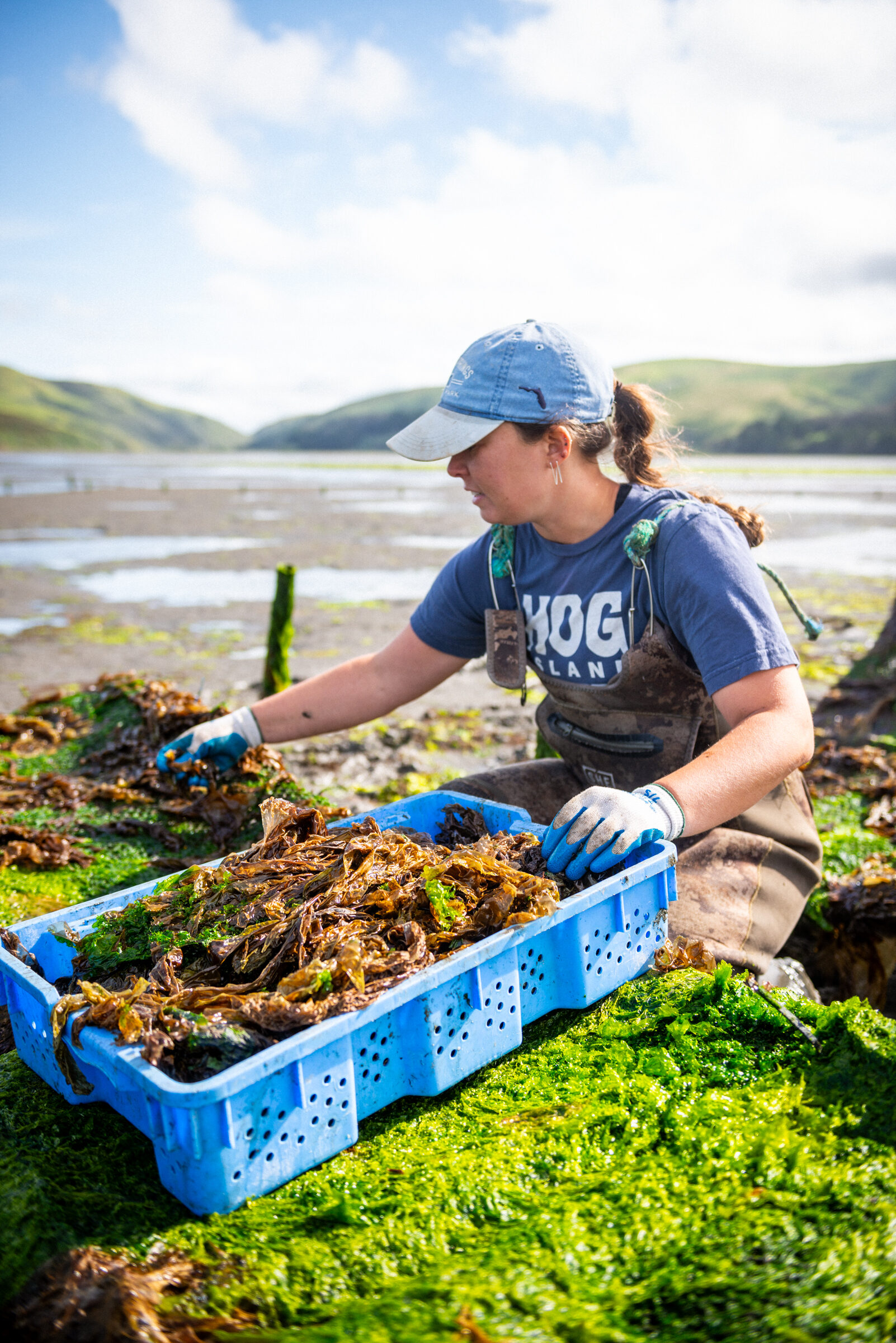
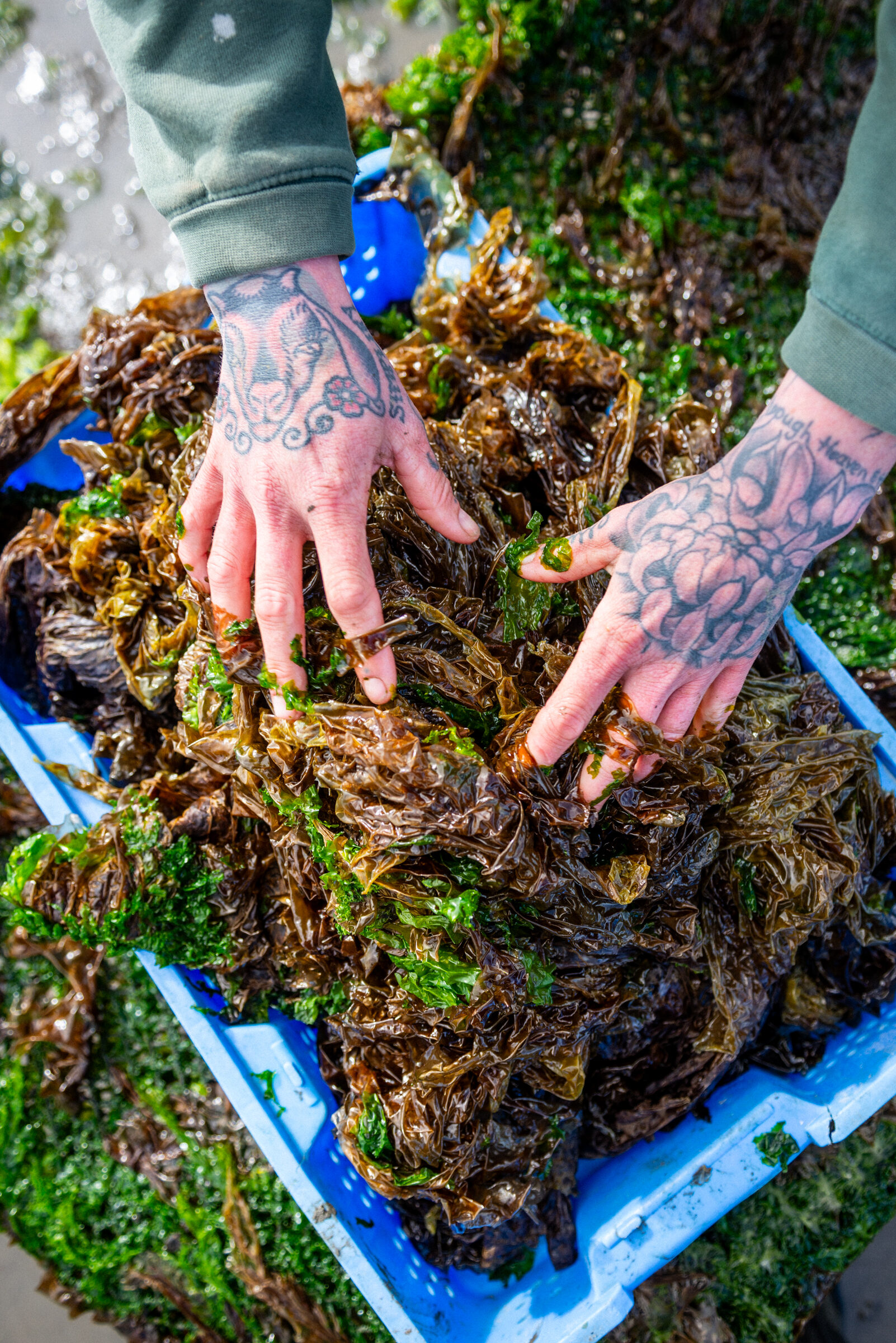
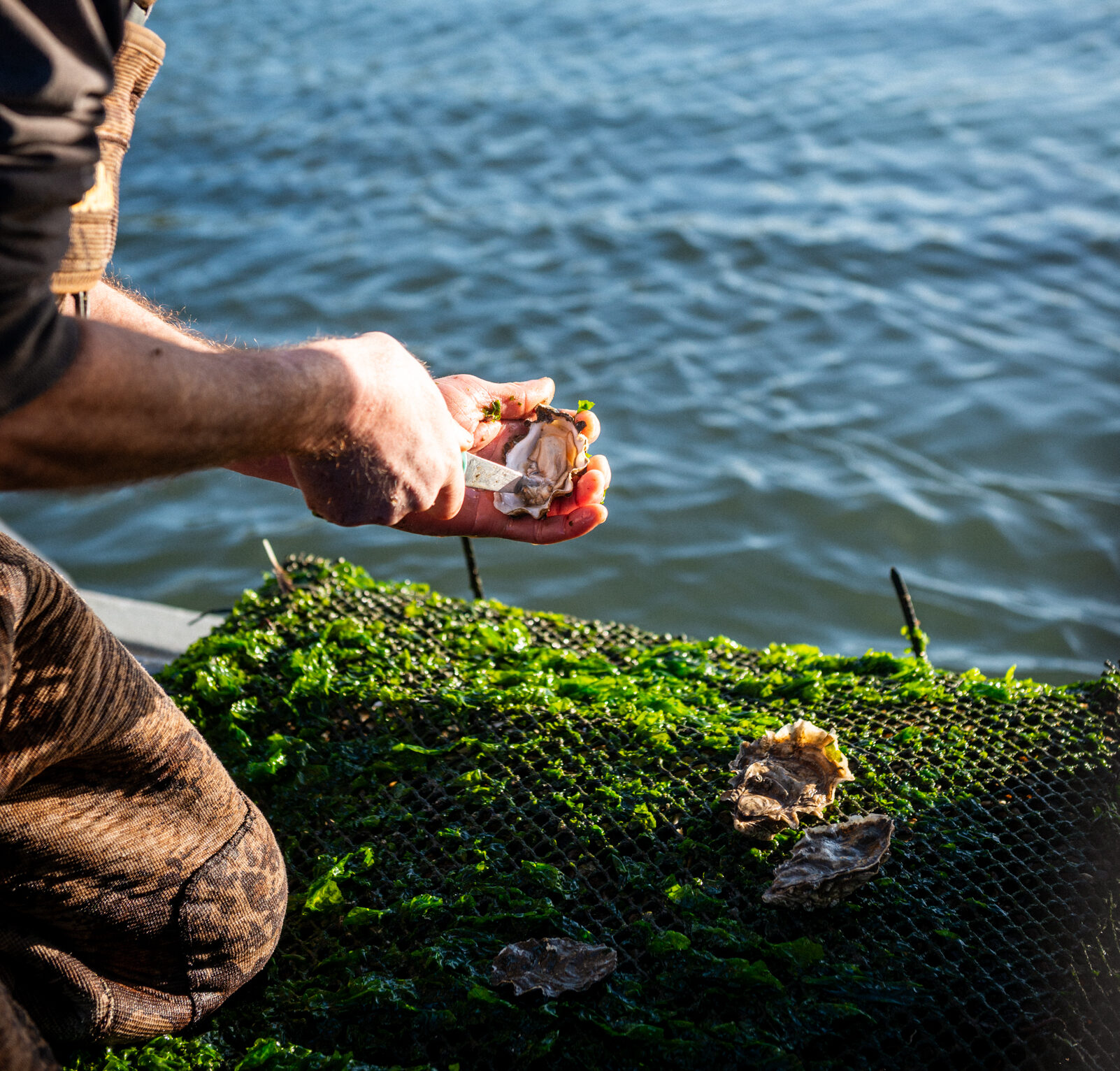
Shellfish Growers Climate Coalition
Hog Island is a founding member of the Shellfish Growers Climate Coalition, a partnership formed in 2015 between shellfish growers across the United States and The Nature Conservancy to inspire climate action now. Today, more than 250 shellfish businesses from 25 U.S. states and Canada work together to secure a low-carbon future for shellfish, and the waters that sustain them by advocating for sound climate policy.
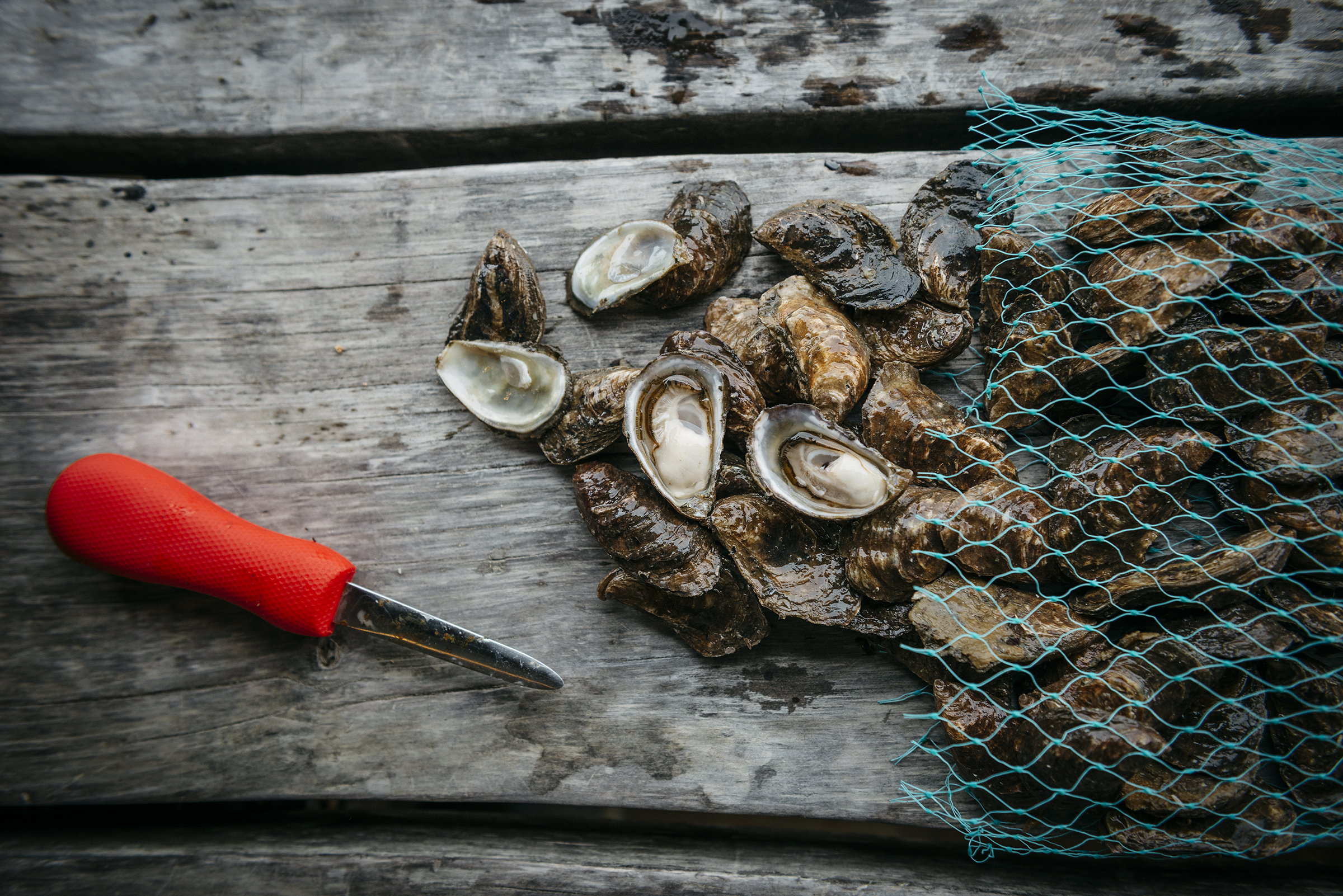
Native “Olympia” Oyster Restoration
Until the late 1800s, the only oyster on the West Coast of North America was a little gem simply called the native oyster (or the Olympia oyster in Puget Sound). While they were highly valued by the coastal Miwoks and the miners of the Gold Rush era, native oysters are very small and grow slowly. With time, oyster farmers turned to more vigorous species, like Atlantic and Japanese oysters, and native oysters slipped off the culinary radar. Today, there is renewed interest in native oysters – both as a foundational species in West Coast bays and estuaries and as a delicious and truly local seafood option. Hog Island is working with a unique partnership of restoration scientists and shellfish growers to bring back native oysters, both in the wild and on farms and restaurant menus. For more information, please visit our friends at the Native Olympia Oyster Collaborative.
Producing High Quality Shellfish + Seafood
From the way we raise our premium oysters on our farms in Tomales and Humboldt Bays to the seafood partners we carefully select, we know our decisions make a difference to our coast and the marine ecosystem as a whole. And while we want every experience our customers have with us to be delicious and memorable, we also want to ensure every meal we serve reflects our commitment to serving seasonal, sustainable, responsibly harvested seafood.
Our oysters: from broodstock to plate.
We have the special privilege of raising our Hog Island oysters from broodstock to plate. Our oysters start out at our Humboldt Bay hatchery, where we cultivate oysters from our own broodstock to the larval stages. Then they head to our nursery system, where specialized tanks and FLUPSYs (Floating Upwelling System) protect young oysters from predators and allow them to grow on the natural upwelling of nutrients and phytoplankton in their ecosystem. Once they’re ready for grow out, they’re transferred to our carefully tended intertidal farms in Tomales and Humboldt Bays. By carefully controlling all aspects of our oysters’ life cycle, we can continue to guarantee the highest quality oysters from the outset and meet our own strict standards of environmental care and consideration. Find out more about how we grow our Our Oysters.
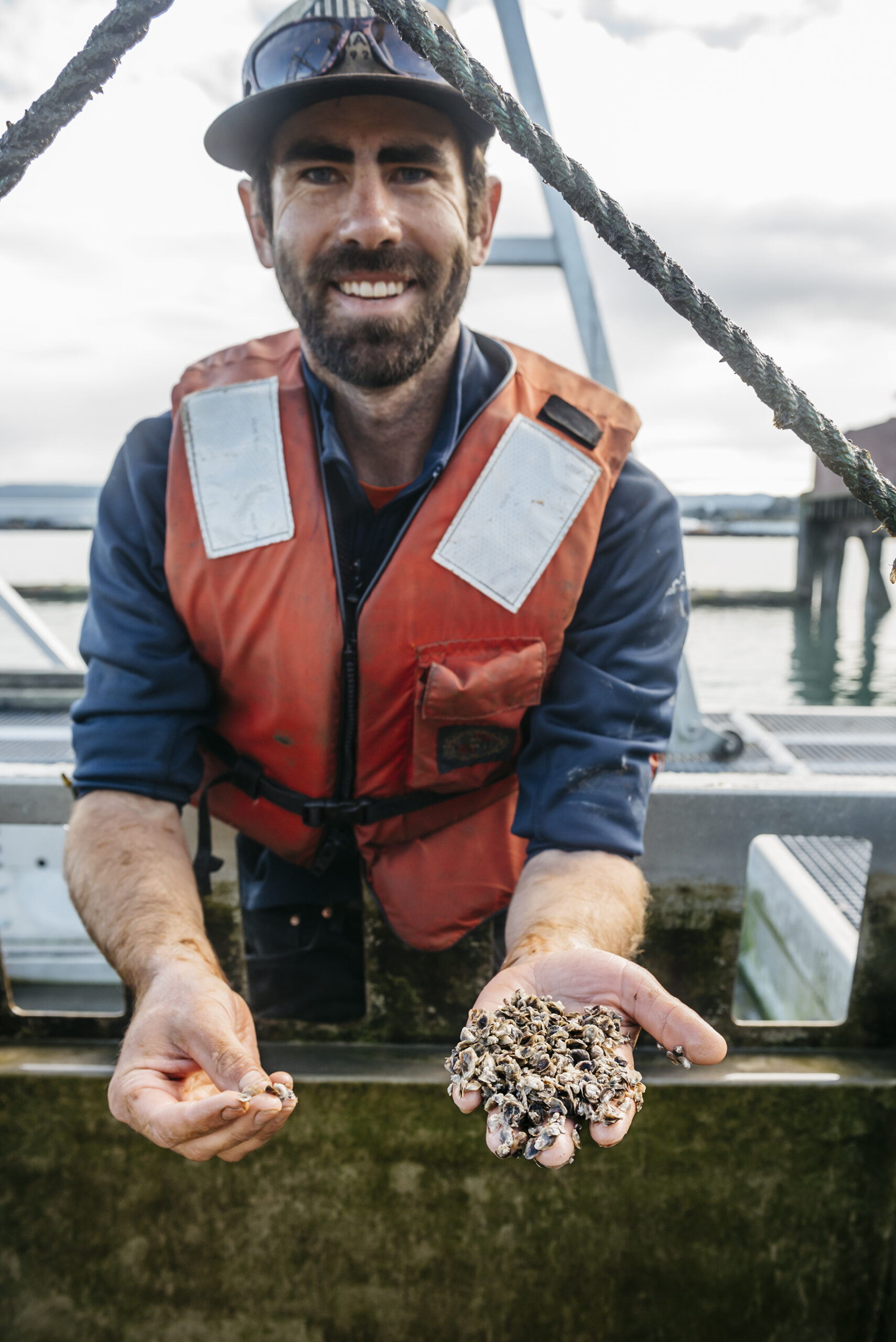
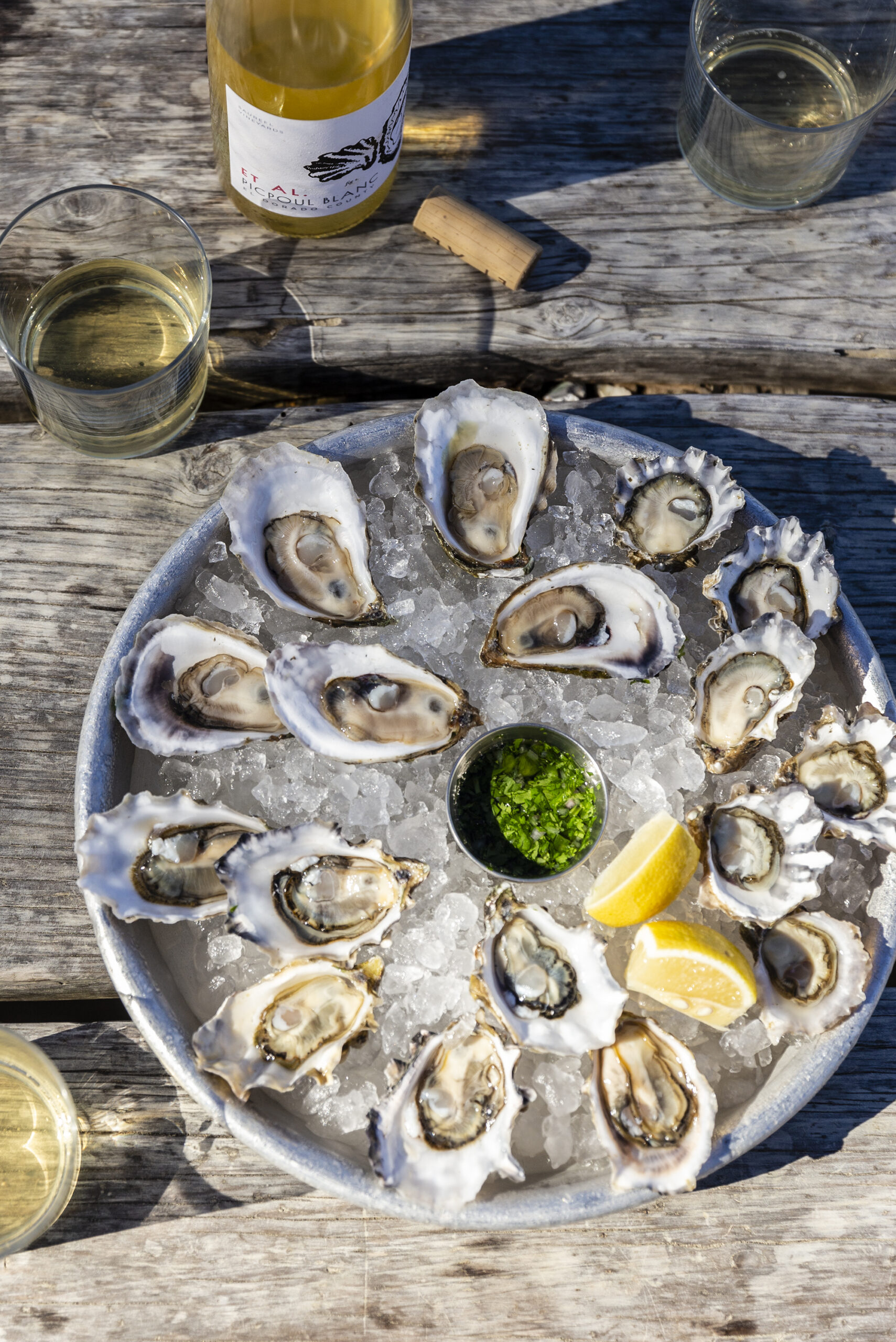
Sourcing sustainable seafood
One of our guiding principles at Hog Island is that the “how” matters—the way in which we achieve our results is as important as the results themselves. In the case of our shellfish, we have direct stewardship over the entire supply chain—from hatchery to farm to table. But we also prepare and sell a wide range of other seafoods, and we’ve had to develop our own standards for how we source them. For us, a sourcing guide isn’t a doctrine of absolutes; instead, we believe there are important questions we should always be asking, and conversations we should always be having about the seafoods we buy and support. Want to learn more about how we source our seafood? Check out our Sourcing Guide.
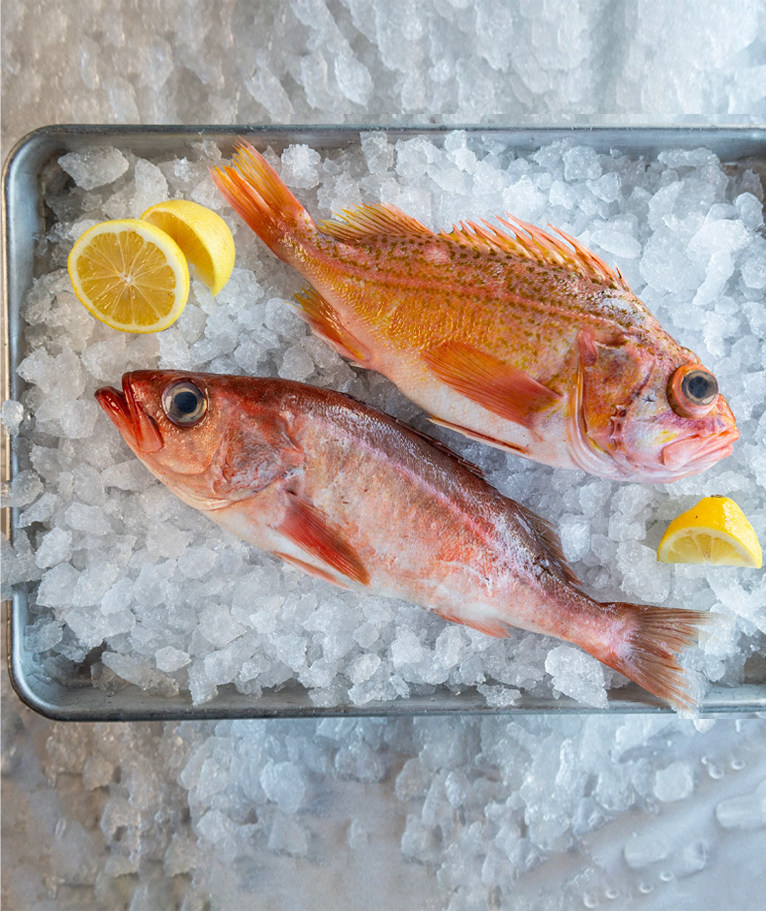
A California Benefit Corporation
In 2016, Hog Island Oyster Co. became a legally incorporated California Benefit Corporation. As a benefit corporation, we have a corporate purpose to create a material positive impact on society and the environment and are required to report on our overall social and environmental performance. Read our past Hog Island Annual Benefit Reports.
